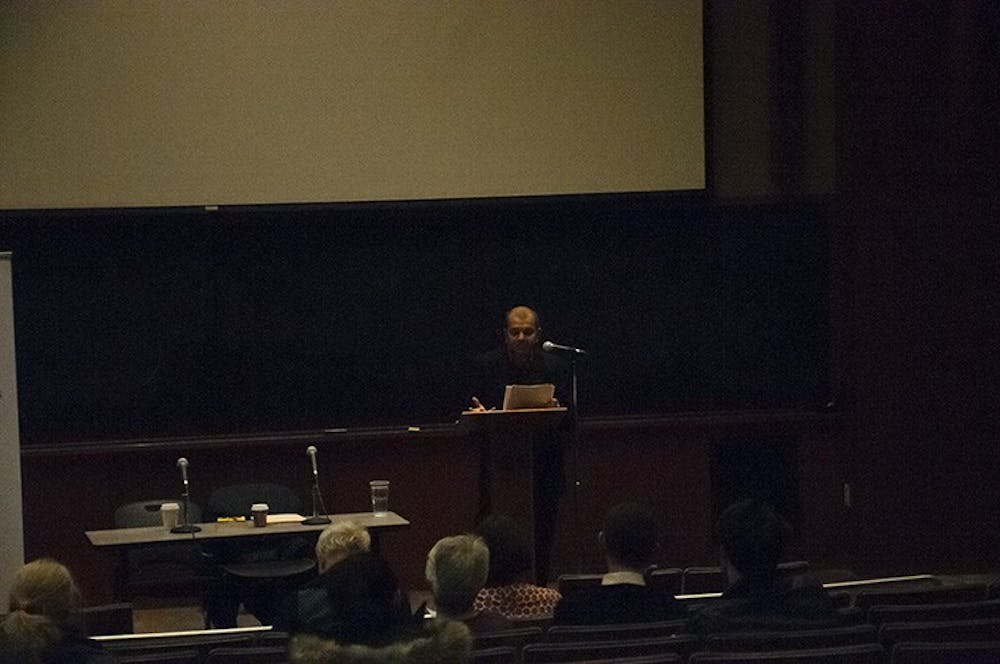Award-winning author Suketu Mehta, associate Journalism professor at New York University, gave a lecture Thursday titled “The Secret Life of Cities.”
The lecture began with an introduction by Joshua Yates, director of the Institute for Advanced Studies in Culture. Yates described Mehta as “a man of many letters,” listing his various accomplishments, including the publishing of his book “Maximum City: Bombay Lost and Found,” being selected as a finalist for the Pulitzer Prize and publishing his writings in publications such as The New Yorker, New York Times Magazine, Time and National Geographic.
Following the introduction, Mehta read an excerpt from his forthcoming book, titled the same as his lecture.
Throughout the lecture, Mehta discussed various aspects of urban life, beginning with the idea of cities lacking enough housing to accommodate the amount of people living there.
“The most important form of exclusion in this time is housing,” Mehta said. “Who gets to live in the city?”
Mehta said the lack of housing especially affects those who are poor. He described housing called “hot beds” where for $200 a month, people are able to rent a bed for eight hours. After eight hours, the renters are required to leave to allow the next occupant a chance to use it.
Mehta also discussed the demographics of urban life, stating once families have children, they often move to the suburbs for “larger houses and better schools.” Mehta said he disapproves of this migration.
“A city without children is a melancholy thing,” Mehta said. “Like a forest without songbirds.”
Not only does Mehta call for age diversity in cities, he calls for ethnic diversity as well, especially in cities which are struggling financially.
“Cities with little diversity, such as Detroit and Baltimore, are stagnating,” Mehta said. “But cities like New York with lots of diversity and industry are thriving.”
Despite some of the perceived drawbacks of urban life, Mehta said he enjoys the lifestyle.
“These encounters enrich my life,” Mehta said. “Every time I get mugged, I have a story to tell.”
Approximately 80 people were in attendance of the lecture.
Third-year College student Katie Deal chose to attend the lecture because of her interest in the way cities develop around migrant cultures.
“My main takeaway [from the lecture] was that our conception of culture has to change because of all the different ways the cities exclude populations as they move in and try to find a home,” said Deal.
Fourth-year College student Tamar Ziff further emphasized the point of incorporation of culture made during Mehta’s lecture.
“United States cities are so cookie-cutter,” Ziff explained. “The urban planner is seen as some office job without a lot of excitement, and it shouldn’t be. The whole point of the urban planner is the incorporation of cultural movements and ideas into cities.”







